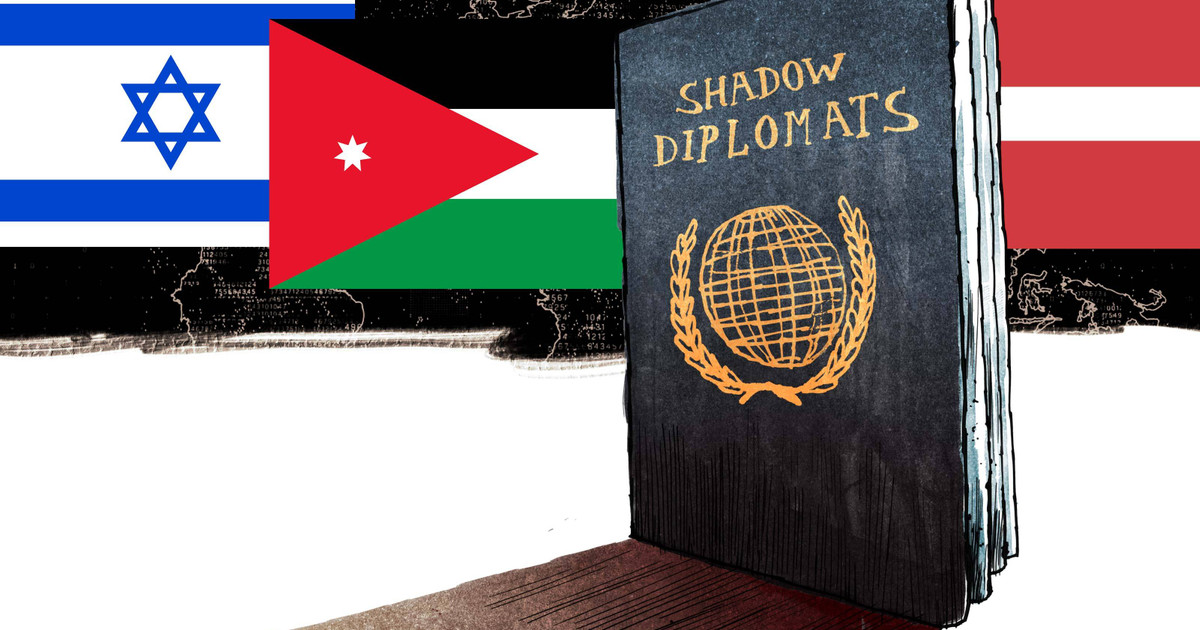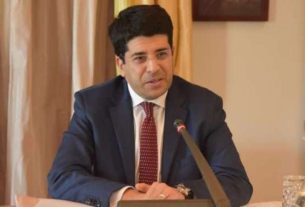Three more countries have announced reviews of honorary consuls after an investigation by the International Consortium of Investigative Journalists and ProPublica revealed widespread wrongdoing by members of the little-known system of volunteer diplomats.
Jordan, Latvia and Israel have either terminated the status of honorary consuls operating within their borders or ordered reviews of those currently serving.
Meanwhile, reporters at ICIJ media partner El Periódico obtained an exclusive police report with new details about a money laundering probe of honorary consuls in Spain.
Last year, ICIJ and ProPublica, in collaboration with 60 media partners, published “Shadow Diplomats,” an investigation revealing that honorary consuls have repeatedly exploited diplomatic status to threaten international security and the rule of law. The investigation found at least 500 current and former honorary consuls who have been accused of crimes or embroiled in controversy — the majority while they held their posts.
Under international treaty, honorary consuls receive legal protections and privileges that can include immunity from lawsuits and the ability to move consular bags across borders without inspection.
So far, the investigation has prompted action in nine countries. Shortly before publication of our first story and after questions from reporters, Germany and Austria announced the dismissal of one honorary consul in Brazil. After publication, Finland, Brazil and Paraguay promptly announced reforms to their systems of appointing and vetting the volunteer diplomats.
More recently, government ministers in Jordan approved the termination of its honorary consul in Honduras, millionaire businessman Schucry Kafie, according to a Jordanian official.
Kafie had served as honorary consul for Jordan in Honduras for more than three decades. In 2016, a judge cited Kafie’s diplomatic status as honorary consul in allowing the millionaire to avoid detention after an arrest for fraud, the “Shadow Diplomats” investigation found.
Jordan’s council of ministers approved the termination of six honorary consuls, including Kafie, as part of a broader reassessment, according to the official.
The Honduran Foreign Ministry told ICIJ media partner Contra Corriente Honduras that it has not received official notification of the decision. Kafie could not be reached for comment. Previously, Kafie has denied wrongdoing and told ICIJ and ProPublica that the criminal charges, which were dismissed, were politically motivated.
In Latvia, the Foreign Ministry announced an investigation after the project revealed the honorary consul representing Indonesia had once tried to claim diplomatic immunity when facing charges of assaulting his wife. The honorary consul, Valdis Tilgalis, received a fine, records show.
“In light of the information received, the ministry shall look into the matter in depth,” said a spokesperson for the Ministry of Foreign Affairs, adding that it became aware of the assault charges only after receiving questions from reporters. “The ministry is currently vetting the matter in collaboration with law enforcement authorities.”
Tilgalis told ICIJ and ProPublica that the charges against him were untrue and that his attorney told him the case would soon be forgotten. Tilgalis told ICIJ that his lawyer had suggested that he mention his honorary consul status, which could give him immunity from administrative proceedings. “Unfortunately, when the case was already in process, the status of honorary consul did not help,” Tilgalis said.
In Israel, the Ministry of Foreign Affairs launched a review after reporters identified consuls facing corruption allegations and other criminal probes.
ICIJ media partner Shomrim obtained public records showing that Israel requires honorary consuls representing foreign countries inside its borders to be “free from any blemish of moral purity.” Honorary consuls appointed by Israel overseas, records show, may be dismissed if they are found to have “behaved in a manner that is not appropriate.”
Despite the policy governing representatives in foreign countries, the “Shadow Diplomats” investigation found Israel has recognized and appointed one honorary consul to represent it who had previously been convicted of fraud and others who have faced charges of corruption, money laundering, diamond trafficking and rape.
The Foreign Ministry announced it would examine the status of two current honorary consuls, one who was a key witness in a vast corruption case in Africa and another who recently used his honorary consul status to prevent police in Italy from searching his home as part of an illegal political financing probe.
In Spain, the police report obtained by El Periódico detailed links between honorary consuls and Simón Montero Jodorovich, a member of a prominent Barcelona family who is suspected of trafficking drugs. Barcelona police believe honorary consuls helped move money for him.
“We can conclude that Mr. Simón Montero Jodorovich, directly or indirectly, paid an amount of more than 20,200 euros in cash to obtain favors from honorary consuls,” police wrote in the latest report. “Payments would be in consideration for managing contacts with representatives of public administrations, since their position as honorary consuls allowed them direct access to high civil or political positions.”
The consuls — who have represented countries in Africa and Europe — deny wrongdoing and have not been charged. An attorney for Jodorovich previously told ICIJ and ProPublica that his client is innocent and “has never manipulated any consul.”



